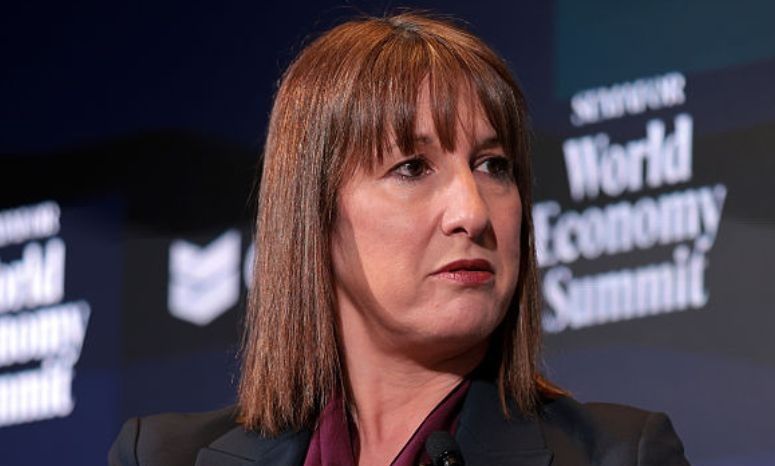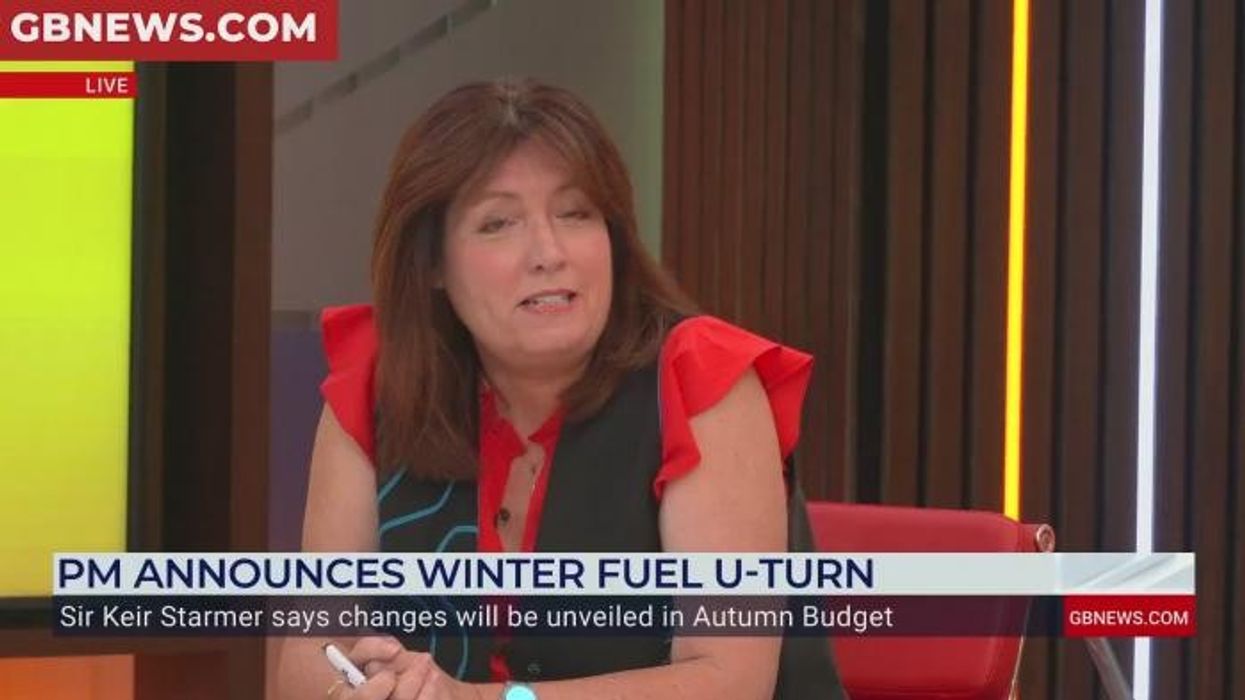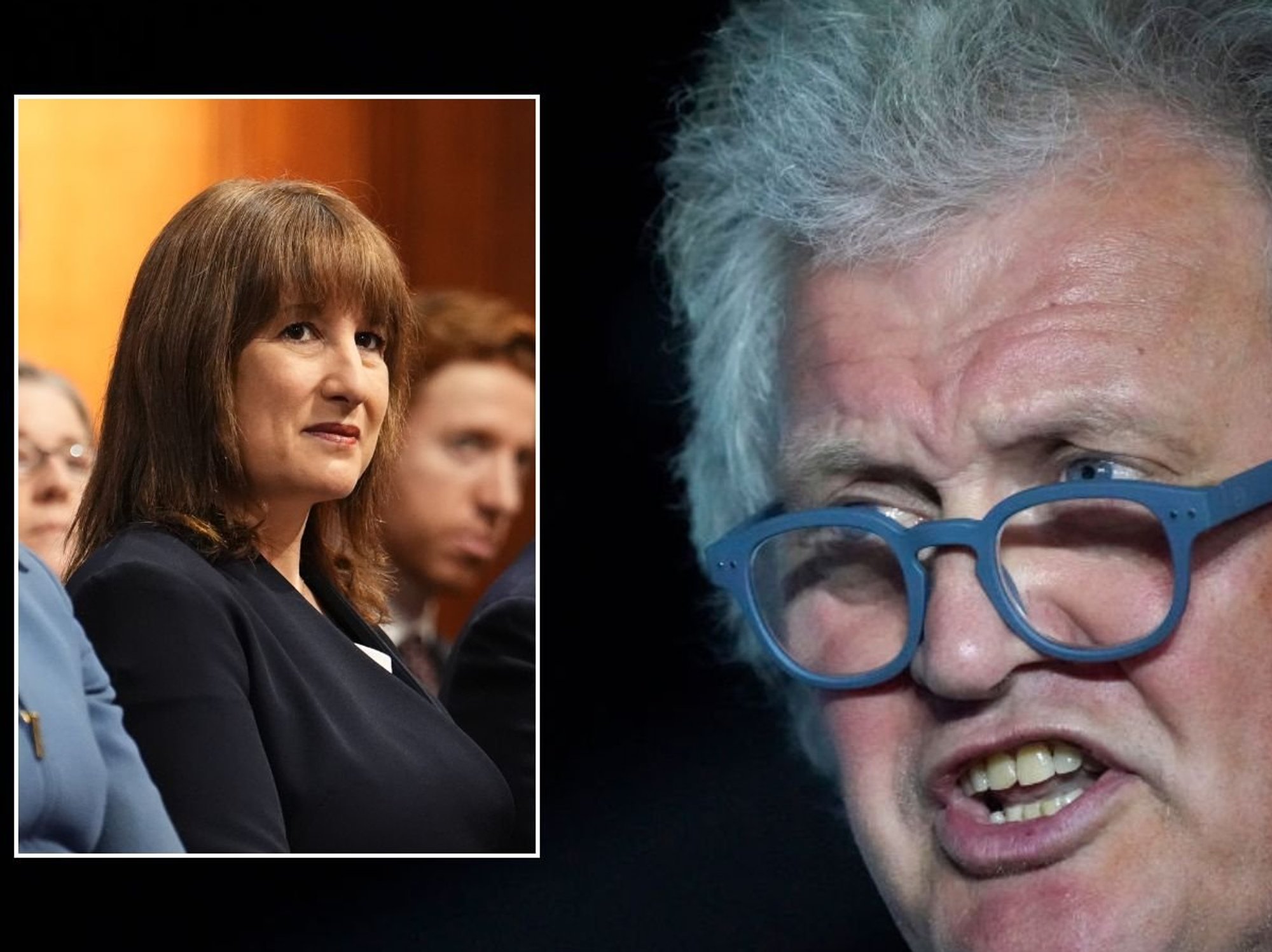'The UK economy is heading for a reckoning - but there are four ways Rachel Reeves could stop it'

Professor Joe Nellis warns that debt, weak growth, and rigid fiscal rules are pushing the UK towards a crunch point
Don't Miss
Most Read
Latest
The UK may have recorded the fastest GDP growth in the G7 earlier this year, but that momentum is already under threat.
Economic activity is expected to slow in the coming months, and the risks facing the public finances are growing.
According to Professor Joe Nellis, economic adviser at MHA, the Chancellor is facing a difficult balancing act.
He spoke exclusively with GBNews and said: "She must manage weak economic growth prospects, an increasing public sector debt burden, and limited fiscal headroom due to her self-imposed fiscal constraints.
"Although the UK has made a strong start to the year, with its 0.7 per cent GDP growth in the first quarter the fastest growth in the G7, this momentum will not continue.
"Economic activity is expected to slow over the coming months, due to global headwinds and fragile domestic business confidence."
Rachel Reeves has pledged to bring stability to the economy and restore fiscal credibility, but Professor Nellis argues that this alone may not be enough.
He added: "She needs to find a balance between support for long-term investments needed to kick-start the economy and improve productivity, and the short-term pressures of managing the expectations of the public, while at the same time ensuring financial sustainability. This is a difficult balancing act."
With the debt-to-GDP ratio now nearing 100 per cent and the cost of debt servicing expected to exceed £100bn annually for years to come, the options are narrowing.
Professor Nellis outlines four key routes Reeves might take to dig herself out of this economic hole.

Professor Nellis outlines four key routes Reeves might take to dig herself out of this economic hole
|Professor Nellis
"Reeves’ fiscal commitment — day-to-day public sector spending to be met by revenues from taxes and other sources and debt to be falling as a share of the economy by 2029/30 — is now under serious pressure.
"Higher borrowing costs and persistent inflation have made it more difficult to meet these targets without compromising key policy goals.”
There are several routes the Chancellor might take to dig herself out of this hole, he said:
Revisiting the fiscal rules
"Well-timed expenditure in key sectors can provide a much-needed stimulus to the economy, generate higher future tax revenues, and help reduce the public sector debt burden over the long term. This would be akin to increasing your mortgage and extending the loan period."

Reeves has already signalled her support for large-scale projects such as the expansion of Heathrow
|GETTY
Accelerating Infrastructure Development
Reeves has already signalled her support for large-scale projects such as the expansion of Heathrow and the development of the Oxford-Cambridge corridor.
"By removing red tape and accelerating these plans, the Government could unlock productivity gains and employment opportunities more quickly."
Leveraging Pension Funds
Reforming regulations around pension fund investments could unlock new sources of capital for many more infrastructure projects. This would allow the Government to support economic growth without adding to public sector debt.
Targeted Tax Increases
"While the Government has ruled out rises in personal tax rates, Reeves could still pursue selective measures — such as increasing taxes on luxury goods or profits from the financial services sector — to raise revenue in a less politically risky way and appease some of her critics in the Labour Party."
Taken together, these strategies could provide an escape route, but only if the Chancellor is willing to depart from convention.
Professor Nellis said: "To move forward, Rachel Reeves may have no choice but to loosen her stance on fiscal discipline, especially if she wants to deliver on promises of public investment.
"But while further spending could help stimulate the economy, the government will also need to keep all options on the table to ensure that any future expansion is financially sustainable."

The UK’s debt has also grown significantly, with the debt-to-GDP ratio now nearing 100 per cent and the cost of servicing this debt expected to exceed £100bn per year for the years ahead
| GETTYThat means thinking beyond fixed rules and short-term headlines. "This requires careful sequencing of reforms, and we’re pleased the Government has agreed to our calls to publish an implementation timeline."
The choices ahead are not simple. But in Professor Nellis's view, they are unavoidable.
"The UK’s debt has also grown significantly, with the debt-to-GDP ratio now nearing 100 per cent and the cost of servicing this debt expected to exceed £100bn per year for the years ahead."
In short, the clock is ticking.
More From GB News











